Sergei Mikhailovich Prokudin-Gorskii (1863-1944) - Early Colour Photography and the Russian Empire
 Fabric merchant, Samarkand. Merchant's display includes silk, cotton, and wool fabrics as well as a few carpets. A framed page of the Koran hangs at the top of the stall (1905-1915)
Fabric merchant, Samarkand. Merchant's display includes silk, cotton, and wool fabrics as well as a few carpets. A framed page of the Koran hangs at the top of the stall (1905-1915)
 Fabric merchant, Samarkand. Merchant's display includes silk, cotton, and wool fabrics as well as a few carpets. A framed page of the Koran hangs at the top of the stall (1905-1915)
Fabric merchant, Samarkand. Merchant's display includes silk, cotton, and wool fabrics as well as a few carpets. A framed page of the Koran hangs at the top of the stall (1905-1915)From 1905 to 1915, Sergei Mikhailovich Prokudin-Gorskii recorded the Russian Empire - in colour.
His early colour photographic technique involved taking three black and white photos of a subject - each with a different tinted filter - and then combining the three to form a colour image.
This extraordinary enterprise has recently been made accessible to the general online public by Walter Frankhauser, who was contracted by the Library of Congress to restore 1900 of Prokudin-Gorskii's images. His results can be seen at The Empire That Was Russia. More of the photographer's work can be seen at the Russian site Сергей Михайлович Прокудин-Горский.
The photographs are breath-takingly beautiful - the composition of each seems so 'right' and without being forced or calculated. All clear, spaciously 'set out', uncluttered with excess detail.
I've organized a selection of images into five categories: people, technology, work and its consequences, buildings and city and landscapes.
People
 Alim Khan (1880-1944) - Emir of Bukhara (1911)
Alim Khan (1880-1944) - Emir of Bukhara (1911)
 Jewish Children with Teacher in Samarkand (1909-1915)
Jewish Children with Teacher in Samarkand (1909-1915)
 Dagestani couple posed outdoors for portrait (1904)
Dagestani couple posed outdoors for portrait (1904)
 Turkmen man posing with camel loaded with sacks, probably of grain or cotton, Central Asia (1905-15)
Turkmen man posing with camel loaded with sacks, probably of grain or cotton, Central Asia (1905-15)
 Tea factory in Chakva. Chinese foreman Lau-Dzhen-Dzhau (1905-1915)
Tea factory in Chakva. Chinese foreman Lau-Dzhen-Dzhau (1905-1915)
 Turkman woman by yurt (1911)
Turkman woman by yurt (1911)
 Sunni Muslim man in traditional dress and headgear with sheathed dagger at his side. Dagestan (1905-1915)
Sunni Muslim man in traditional dress and headgear with sheathed dagger at his side. Dagestan (1905-1915)
Technology
 Alternators made in Budapest, Hungary, in the power generating hall of a hydroelectric station in Iolotan on the Murghab River (1909)
Alternators made in Budapest, Hungary, in the power generating hall of a hydroelectric station in Iolotan on the Murghab River (1909)
 Cotton textile mill interior with machines producing cotton thread, in Bayram-Ali (1911)
Cotton textile mill interior with machines producing cotton thread, in Bayram-Ali (1911)
 Russian steam locomotive Aa-76 (1910)
Russian steam locomotive Aa-76 (1910)
 Metal Truss Railroad Bridge on Kama River, near Perm city (1909-1915)
Metal Truss Railroad Bridge on Kama River, near Perm city (1909-1915)
 Windmills in Yalutorovsk district of Tobolsk Province, Russia (1915)
Windmills in Yalutorovsk district of Tobolsk Province, Russia (1915)
Work
 Haying, near rest time. Russian Empire. Farm workers standing near farm equipment, taking break (1909)
Haying, near rest time. Russian Empire. Farm workers standing near farm equipment, taking break (1909)
 Method for storing hay Viazovaia Station (1909)
Method for storing hay Viazovaia Station (1909)
 Melon vendor in traditional Central Asian attire at his stand in the marketplace of Samarkand in present-day Uzbekistan (1905-1915)
Melon vendor in traditional Central Asian attire at his stand in the marketplace of Samarkand in present-day Uzbekistan (1905-1915)
 Work at Bakalskii mine. Family with shovels and horse-drawn carts, working at iron mines in Bakaly Kills (1910)
Work at Bakalskii mine. Family with shovels and horse-drawn carts, working at iron mines in Bakaly Kills (1910)
 Tea Weighing Station, Chakva tea farm and processing plant just north of Batumi, close to the Black Sea coast of Georgia (1905-1915)
Tea Weighing Station, Chakva tea farm and processing plant just north of Batumi, close to the Black Sea coast of Georgia (1905-1915)
 Production of artistic casting in the Kasli Iron Works in heart of the Ural Mountains between the cities of Ekaterinburg and Cheliabinsk (1909-1915)
Production of artistic casting in the Kasli Iron Works in heart of the Ural Mountains between the cities of Ekaterinburg and Cheliabinsk (1909-1915)
 Monks at work. Planting potatoes. Gethsemane Monastery (1909)
Monks at work. Planting potatoes. Gethsemane Monastery (1909)
Buildings
 Shakh-i Zindeh Mosque in Samarkand (1905-1915)
Shakh-i Zindeh Mosque in Samarkand (1905-1915)
 Stork nests on unidentified religious building, probably in Bukhara (1911)
Stork nests on unidentified religious building, probably in Bukhara (1911)
 Church of the Assumption of the Mother of God. Belozersk, Russian Empire (1909)
Church of the Assumption of the Mother of God. Belozersk, Russian Empire (1909)
 Borodino Station (1911)
Borodino Station (1911)
City and Landscapes
 Dvinsk Daugavpils, Novoye Stroyeniye neighbourhood (1912)
Dvinsk Daugavpils, Novoye Stroyeniye neighbourhood (1912)
 General view of the town of Torzhok in the early 20th century
General view of the town of Torzhok in the early 20th century
 Staritsa, Russia (1912)
Staritsa, Russia (1912)
 Tobolsk from north, from the bell tower of the Church of Transfiguration Preobrazhensky Sobor Russia (1912)
Tobolsk from north, from the bell tower of the Church of Transfiguration Preobrazhensky Sobor Russia (1912)
Thanks to Jason M for emailing me the URL of a blog - which started me on the search for more of Prokudin-Gorskii's images! Alim Khan (1880-1944) - Emir of Bukhara (1911)
Alim Khan (1880-1944) - Emir of Bukhara (1911) Jewish Children with Teacher in Samarkand (1909-1915)
Jewish Children with Teacher in Samarkand (1909-1915) Dagestani couple posed outdoors for portrait (1904)
Dagestani couple posed outdoors for portrait (1904) Turkmen man posing with camel loaded with sacks, probably of grain or cotton, Central Asia (1905-15)
Turkmen man posing with camel loaded with sacks, probably of grain or cotton, Central Asia (1905-15) Tea factory in Chakva. Chinese foreman Lau-Dzhen-Dzhau (1905-1915)
Tea factory in Chakva. Chinese foreman Lau-Dzhen-Dzhau (1905-1915) Turkman woman by yurt (1911)
Turkman woman by yurt (1911) Sunni Muslim man in traditional dress and headgear with sheathed dagger at his side. Dagestan (1905-1915)
Sunni Muslim man in traditional dress and headgear with sheathed dagger at his side. Dagestan (1905-1915)Technology
 Alternators made in Budapest, Hungary, in the power generating hall of a hydroelectric station in Iolotan on the Murghab River (1909)
Alternators made in Budapest, Hungary, in the power generating hall of a hydroelectric station in Iolotan on the Murghab River (1909) Cotton textile mill interior with machines producing cotton thread, in Bayram-Ali (1911)
Cotton textile mill interior with machines producing cotton thread, in Bayram-Ali (1911) Russian steam locomotive Aa-76 (1910)
Russian steam locomotive Aa-76 (1910) Metal Truss Railroad Bridge on Kama River, near Perm city (1909-1915)
Metal Truss Railroad Bridge on Kama River, near Perm city (1909-1915) Windmills in Yalutorovsk district of Tobolsk Province, Russia (1915)
Windmills in Yalutorovsk district of Tobolsk Province, Russia (1915)Work
 Haying, near rest time. Russian Empire. Farm workers standing near farm equipment, taking break (1909)
Haying, near rest time. Russian Empire. Farm workers standing near farm equipment, taking break (1909) Method for storing hay Viazovaia Station (1909)
Method for storing hay Viazovaia Station (1909)  Melon vendor in traditional Central Asian attire at his stand in the marketplace of Samarkand in present-day Uzbekistan (1905-1915)
Melon vendor in traditional Central Asian attire at his stand in the marketplace of Samarkand in present-day Uzbekistan (1905-1915) Work at Bakalskii mine. Family with shovels and horse-drawn carts, working at iron mines in Bakaly Kills (1910)
Work at Bakalskii mine. Family with shovels and horse-drawn carts, working at iron mines in Bakaly Kills (1910) Tea Weighing Station, Chakva tea farm and processing plant just north of Batumi, close to the Black Sea coast of Georgia (1905-1915)
Tea Weighing Station, Chakva tea farm and processing plant just north of Batumi, close to the Black Sea coast of Georgia (1905-1915) Production of artistic casting in the Kasli Iron Works in heart of the Ural Mountains between the cities of Ekaterinburg and Cheliabinsk (1909-1915)
Production of artistic casting in the Kasli Iron Works in heart of the Ural Mountains between the cities of Ekaterinburg and Cheliabinsk (1909-1915) Monks at work. Planting potatoes. Gethsemane Monastery (1909)
Monks at work. Planting potatoes. Gethsemane Monastery (1909)Buildings
 Shakh-i Zindeh Mosque in Samarkand (1905-1915)
Shakh-i Zindeh Mosque in Samarkand (1905-1915) Stork nests on unidentified religious building, probably in Bukhara (1911)
Stork nests on unidentified religious building, probably in Bukhara (1911) Church of the Assumption of the Mother of God. Belozersk, Russian Empire (1909)
Church of the Assumption of the Mother of God. Belozersk, Russian Empire (1909) Borodino Station (1911)
Borodino Station (1911)City and Landscapes
 Dvinsk Daugavpils, Novoye Stroyeniye neighbourhood (1912)
Dvinsk Daugavpils, Novoye Stroyeniye neighbourhood (1912) General view of the town of Torzhok in the early 20th century
General view of the town of Torzhok in the early 20th century Staritsa, Russia (1912)
Staritsa, Russia (1912) Tobolsk from north, from the bell tower of the Church of Transfiguration Preobrazhensky Sobor Russia (1912)
Tobolsk from north, from the bell tower of the Church of Transfiguration Preobrazhensky Sobor Russia (1912)

![C18 Bronze Buddha [Southern China]](https://blogger.googleusercontent.com/img/b/R29vZ2xl/AVvXsEioLkgVKuhDoIHQgM1X6Oe2hGn75yqaj4OJXPmNpumXmQPKxB22S57YS5DVrl1P7zl7BS6EFpAtaNZPze7gzVCRiQI54bwdHhVa4fGr7NOChZwTZoo92gUen6tC5U8gWIy_pv92U0FB38M/s1600/Buddha+%255BBronze%252C+C18%252C+China%255D+1.jpg)




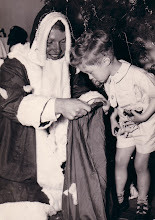








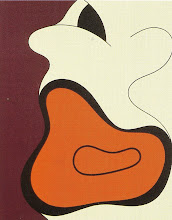+1998+Cropped.jpg)

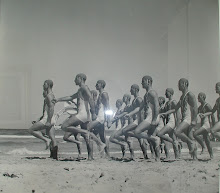
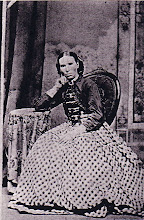



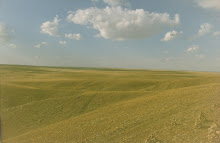



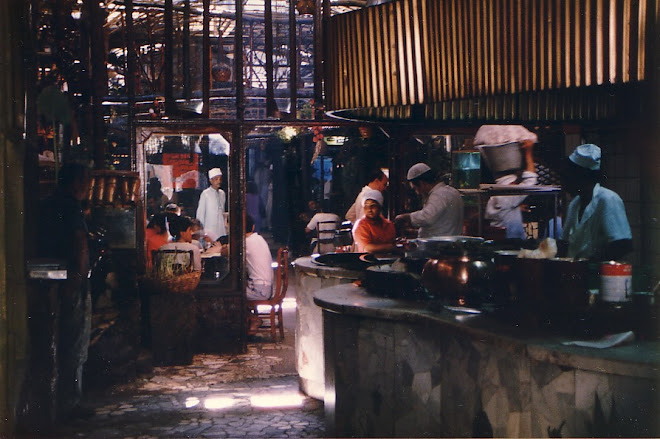

Beautiful images of Russian "empire" at the turn of the 20th century!
ReplyDeleteThanks for sharing.
Sad to say that 90+ years later the quality of photography seldom reaches this level.
ReplyDeleteAlan down in Florida
hey alan
ReplyDeletehate being a luddite, but must agree with you!
BTW, i changed the post a bit - beginning with Prokudin-Gorskii's photo was such a dreary and conventional beginning!
more later
nick
hey greg
ReplyDeleteglad you liked them
often these kinds of photos are interesting rather than having heaps of artistic worth - but a double whammy for Prokudin-Gorskii!
nick
Most excellent! The world is a little bit better off because the organ between your ears desires the pleasures that it does. I look forward to few things, your blog is one of them because such things as Prokudin-Gorskii's images would be unknown to me otherwise.
ReplyDeleteMike
These are incredible pictures. I can't believe how clear and sharp they are. It just goes to prove that every culture has beauty, charm and everyone on earth leans toward artistic expression. What absolutely beautiful villages and towns these are. It is a shame that they are not alway preserved.
ReplyDeletehey anon
ReplyDeleteyep, they are pretty special!
this selection of the photographer's work was 'restored' as i mentioned in the post and i guess in pristine condition due in part to to this
don't many of them look as tho they could've been done yesterday! particularly:
Alim Khan (1880-1944) - Emir of Bukhara (1911)
and
Alternators made in Budapest, Hungary, in the power generating hall of a hydroelectric station in Iolotan on the Murghab River (1909)
good to hear from you - take care
nick
Thank you for this post! I enjoy all the gorgeous naked guys, of course, but this touches me in a very special way. One of the delights of your blog is never knowing what you're sharing with us on any given day.
ReplyDeleteIn addition to what others have commented, I'm touched by the poignancy of seeing a world that no longer exists. Being allowed a glimpse of a life so far removed from what's outside my door.
What a marvelous gift! Thank you.
hey paul in NY
ReplyDeleteand i was very touched by your lovely appreciation - thanks a lot
the poignancy for me is also cos of the turmoil of the impending revolution - just a handful of years away - an event that was to to engulf and destroy so much of what we see in this 1905-15 record
great to hear from you
nick
Great pictures
ReplyDeleteyes, they are!
ReplyDeleteglad you enjoyed them
nick